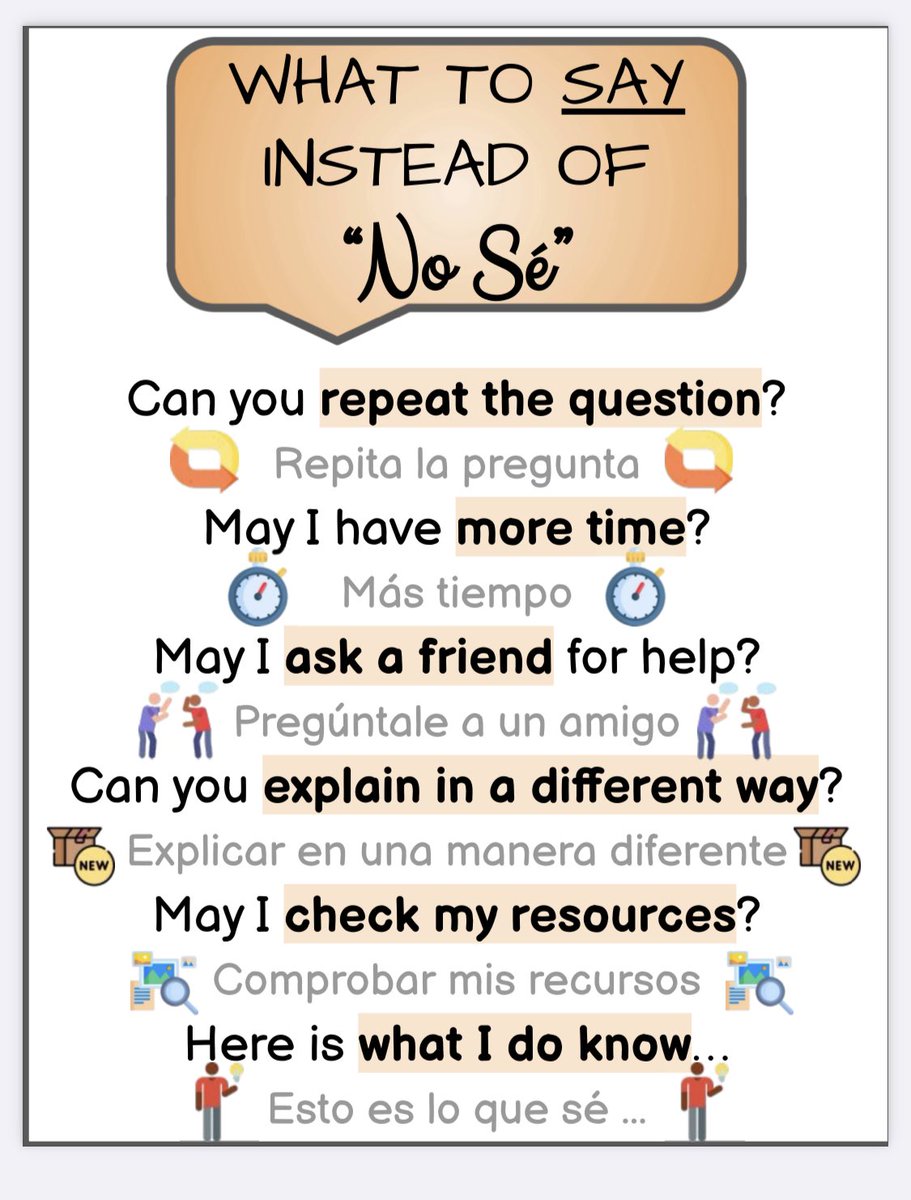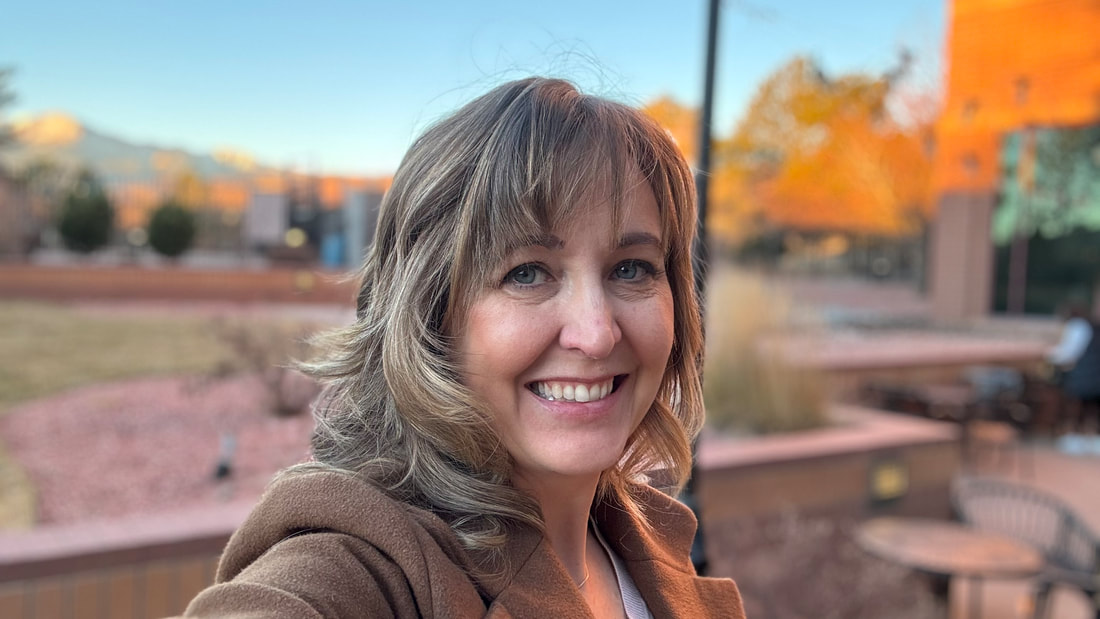|
I talk to my own kids about what I'm doing in the classroom, probably too much. I do get a lot of good ideas from them. One time I was talking to my son and explaining the theory behind the "What to say instead of "I don't know," poster, which I encourage teachers to have in their classrooms. He remarked: "Mom, are you really training kids to say: "May I please have some more information?" (This was said sarcastically). "What, are they talking to the Queen of England? Is this a Charles Dickens novel?" (I wish!) He went on:
"I hate it when teachers correct me when I'm asking to go to the bathroom ("May I..") He's actually not wrong in this criticism. Linguist Stephen Krashen describes how ineffective it actually is when we teachers correct students' grammar in the classroom in this way, but I'm getting off-topic. My son's point is that he wanted to give students the meta-cognitive tools to think about why they don't know the answer, or what they need to find the answer, but spoken in their own way. Since that fateful conversation, I have been encouraging teachers to NOT put up the standard "Instead of "I don't know poster." Instead, to make the poster along with their students. One teacher I worked with in Texas (Dominque Phifer), created this beautiful poster (above) for her newcomer, predominantly Spanish-speaking classes. When teachers make their own posters with and for their students, the responses vary. Sometimes the poster might say something as simple as "Help, please" (if you have a newcomer just at the starting line of language learning, with a very high affective filter). Or perhaps the poster says: "Point to what you need." The point of these posters is to teach students a metacognitive skill and to remind teachers every student has the capacity to find the answer, with support. My son was right (although I would enjoy everyone around me speaking as if it was 18th-century England). Sometimes we get lost in the product and forget about the process. Comments are closed.
|
AuthorElise White Diaz is an Educational Consultant with Seidlitz Education, specializing in trauma-informed multilingual education. CategoriesArchives
July 2024
|


 RSS Feed
RSS Feed
